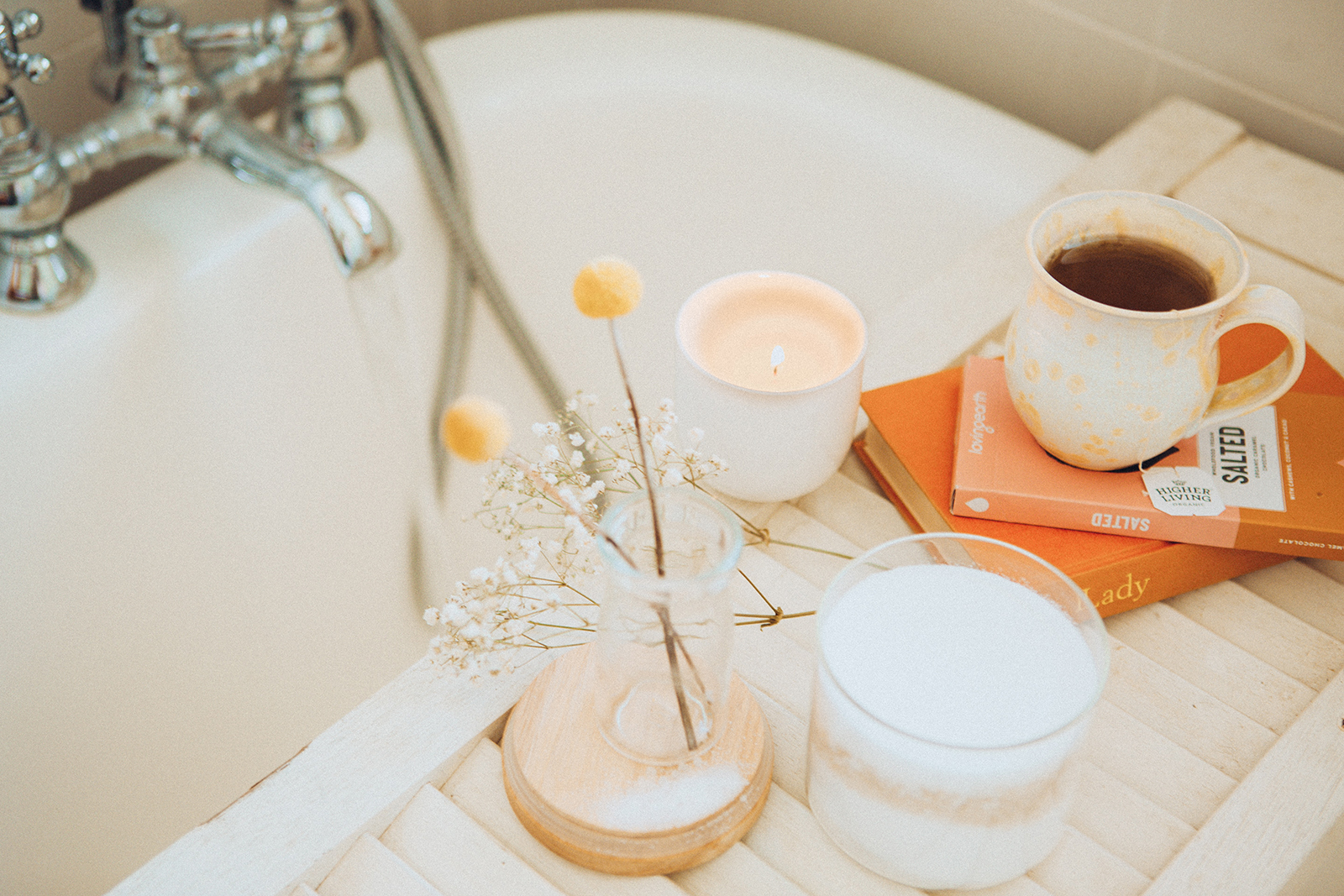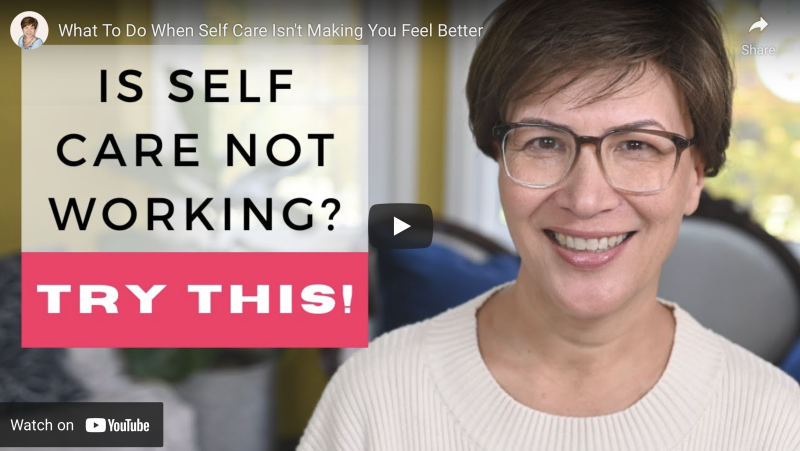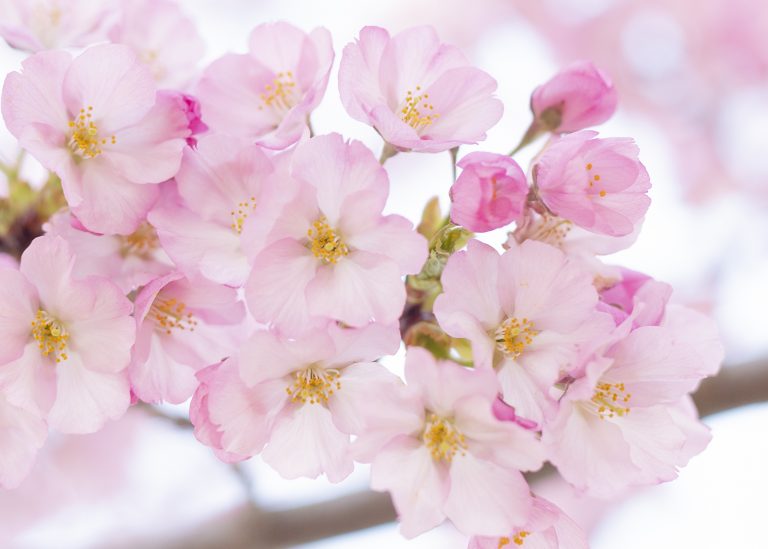The Problem with Self-Care Advice (and what to do about it)
So what is self-care? At the most basic level, it is about taking care of yourself and doing activities that promote your well-being. Sounds easy, right? All we need to do is find an article that lists a bunch of self-care activities that sound good and do them!
Well not quite! Most self-care advice has a few issues! Here are seven issues I’ve identified and what you can do about them.
1. Self-Care advice can be too prescriptive.
Many self-care articles provide a list of things to do that become sort of a checklist or to-do list for self-care. Self-care is NOT one size fits all, however, because we are each a unique individual with unique preferences.
For example, lighting a citrus-scented candle might be very soothing to one person, but to another it might trigger allergies or bad memories. A $50 pedicure might be a lovely self-care treat to one person, but be prohibitively expensive to another.
Furthermore, self-care is not a to-do list of activities we have to complete in order to do self-care “right”. This belief can actually create stress, the opposite of self-care, especially if the list suggests activities that you don’t have the time or money to do.
If we don’t practice some sort of discernment, we can easily become overwhelmed by everything in the self-care space.
Self care is deeply personal and unique to you.
Self-care is only self-care if it works for you, if it truly helps you feel cared for and nourished.
True self-care honors timing, it works for you and your life. It involves checking in with yourself and listening to yourself. What do you need, that you can provide for yourself in this moment?
Self-care doesn’t have to be an ideal or perfect experience for it to be effective. Think of self-care as filling up a reservoir, every little bit helps. For example, if you don’t have time for your hour yoga routine one morning, even a 10 minute stretch will help.
2. Self-Care is too focused on the senses and the body.
Self care is becoming defined by spa days, manicures, facials, luxury makeup, massages, fresh smoothies, and so on. This is in part because of social media, where people share their self-care experiences and experiences that involve the body and the senses are much easier to represent visually.
And it’s also deliberate messaging by companies that want to sell us something, like a fancy blender to make the fresh smoothies.
And it’s also because it’s just easier. Our body sends us signals when it needs care, we are forced to pay attention to it.
True self care also involves the mind and spirit. It can be learning to be more kind and encouraging when you talk to yourself, not letting your inner critic rule your mind. It can be connecting to something larger than yourself through prayer, nature, solitude, and/or quite reflection. Or it might be untangling and changing some of your unhealthy thought patterns, through self-healing or therapy or coaching.
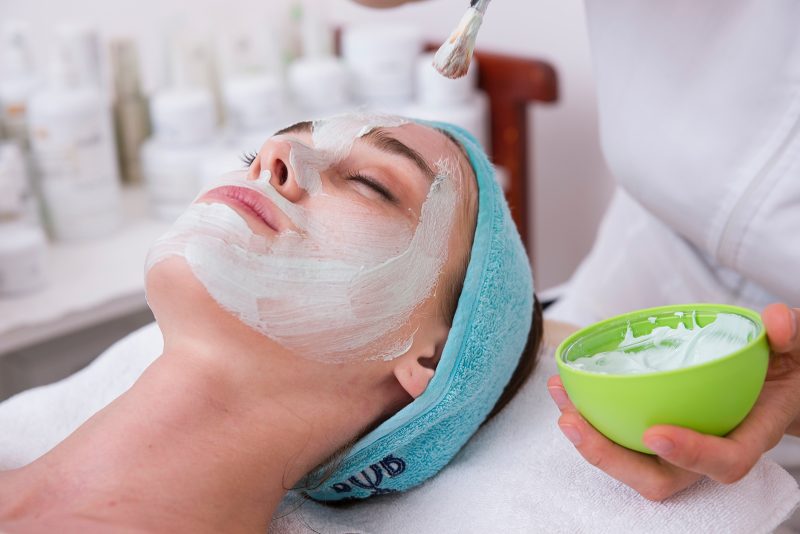
3. Self-Care is too focused on the present.
Self care is becoming defined as something you treat yourself to NOW in order to lift your spirits now.
Most advice doesn’t ask you to think about future you, or may even discourage it. For example, you might buy the luxury facial cream to treat yourself and put it on your charge card. While it may feel good while you buy it, it is not actually self care if future you is going to be majorly stressed out when the credit card bills arrives.
As another example, eating a nice dessert or a couple of glasses of wine one night as a form of self-care is fine, but doing that every night is not self-care if it will cause health problems or arguments with your significant other in the future. That’s actually self-destructive – the opposite of self care.
True self care nurtures and cares for future you.
It doesn’t create problems and headaches down the road for you.
4. Self-Care is too Commercialized
I’ve seen estimates valuing the global self-care and wellbeing industry between $450 billion and $4.2 trillion dollars. Regardless of the exact amount, it’s a lot of money and corporations are scrambling for a piece of that revenue. Consequently we are being bombarded by advertisements and messaging that both define self care and try to sell us products.
Commercialization means you may feel more focused on the visual imagery and status symbols of self care rather than the actual experience of it, especially if you are on social media. Or you may feel like you are doing second-class self-care if you aren’t using the products influencers are using on social media.
Even more damaging, your self care practices themselves may be shaped by commercial messages and not by what actually nourishes you. True self care is built around what you truly need, not around aesthetics or specific products or ever increasing luxury.
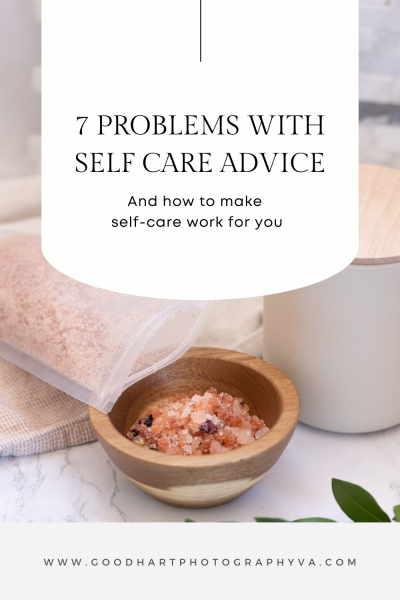
5. Self-Care is too Focused on Positive Feelings and experiences
Of course positive experiences and feelings are important! The emotional or physical boost you get from practicing self care is very real.
Not all self care is convenient or feels good, however. Like waiting on hold to make your annual physical appointment. Or abstaining from salt if you have high blood pressure. It’s important to have a broader view of self-care than something you can buy or treat yourself to.
True self care can actually be challenging or uncomfortable in the present moment.
For example, self care might involve repairing a relationship and having the hard conversations necessary to do that. Or it might involve paying your bills on time and staying on top of your finances to reduce anxiety down the road.
6. Self-Care can be a Little Narcissistic
With so much attention being given to self-care, it’s only natural that people will push the boundaries of self care, like bringing a peacock on a plane as an emotional support animal. Perhaps the peacock WAS a legitimate emotional support animal, but your self care needs don’t operate completely independently of other people’s needs.
Self care is not putting yourself above others all the time. It is not carte blanche to be a jerk about getting your needs met.
True self care requires you to factor your needs into the choices you make, but doesn’t require you to ALWAYS put yourself and your needs first. There are times and seasons when you may not be able to do the best self-care practices for yourself because the needs of others must come first.
7. Self-Care can Function as Avoidance
Sometimes self care can help us avoid dealing with unpleasant things in our life that need our attention. Self care is an excellent way to fortify yourself when you are going through a challenging time, but self care is not going to solve your problems.
Self care can devolve into a type of toxic positivity, where instead of processing and working through negative emotions and feelings, you push them aside by making yourself feel better with self-care.
True self care actually empowers you to face your problems and nourishes you.
Related Articles:
How to Take a Forest Bath (and Why It’s a Good Idea
5 Reasons to Bring Flowers Into Your Home
Take Joy Breaks to Bolster Your Well-being
Conclusion
Self-care is big business and a very popular buzzword.
The next time you read a self-care article, practice discernment. Who benefits if you do this practice? How does it impact future you?
Make sure it serves you and future you, and fits your lifestyle.
Try things out and see how they work for you, and pick and choose the best practices to continue.
Finally, remember there is an ebb and flow to life and to your ability to practice self-care, and don’t beat yourself up when self-care is a struggle. Keep it on your radar and just do your best to include yourself in the list of people you nurture.

